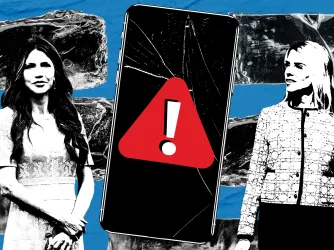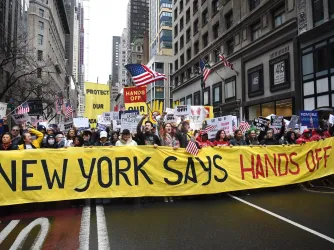Table of Contents
FIRE spokesman clarifies organization's position

This article originally appeared in The Crimson White
To give some background, in July the Foundation for Individual Rights in Education sent a letter to University of Alabama President Robert Witt protesting the University's draft policy that would have banned window displays that were "inconsistent with accepted standards." We also said this policy was apparently in response to an attempt by students to hang a Confederate flag (an allegation supported by CW articles that the University chose not to address in its short response to FIRE).
Perhaps recognizing that a content-based ban on window displays would be unconstitutional, the University apparently decided, instead, to ban all window displays in the dormitories.
The clearest misquote attributed to me in the piece was: "UA has gone above and beyond what is necessary in this case, which is really tragic." That is the combination of a few different things I said during the course of the conversation.
I had simply quipped that, with regards to the new policy, "UA has gone above and beyond, in the worst way possible." I did not qualify with "what is necessary in this case," and I said the policy was "tragic" in context of the message it sends to the college students about the value of free speech.
Dan Whisenhunt wrote that I said the University "has a legal right" to ban all window displays. I was answering the question as a hypothetical: "Could a university ban all window hangings?" The answer I gave was "Probably, yes."
That would be true if the University passed a content-neutral rule with no intent to censor a specific viewpoint. In the University's case in particular, however, since there is evidence the school is using a nominally neutral rule to go after one form of expression (the Confederate flag), the question is not as clear. The Constitution forbids state agencies from discriminating against expression on the basis of political viewpoint, even if they use a nominally "content-neutral" rule to do so.
Another consideration I mentioned to Mr. Whisenhunt was whether the school had given the authority to the dorms themselves to decide the window hanging policy. If the bylaws grant this power to the individual dorms, the school should not circumvent those rules.
However, my legal analysis of what the school may or may not be able to get away with is less important than the moral point. FIRE finds it a shocking testament to the state of free speech at colleges and universities that a university would rather ban an entire category of expression than risk a single student being offended. No university that claims to take free speech seriously could pass such a draconian ban. It is amazing that in this day and age we have to fight for a student's right to decorate his or her own windows.
I made this point numerous times in my conversation with Mr. Whisenhunt, but the quote he attributes to me was still incorrect. I never said, "Universities should be seeking to get students used to accepting ideas they don't agree with." I said universities should be helping students learn to deal with and tolerate the expression of ideas they do not agree with instead of trying to censor them.
People do not need to accept positions they disagree with, but they should tolerate their existence and expression without trying to silence them unlawfully or unfairly. By trying to shelter students from ideas or images they might find offensive, universities are not only sending a bad message about the value and process of free speech in our society, they are also failing to prepare students for life beyond the university's borders.
Finally, I believe Mr. Whisenhunt's claim that "Lukianoff said ... FIRE cannot promise any assistance to students who wish to protest the new policy" misconstrues what I actually said. FIRE is still discussing what the appropriate next step is in this case, so I was not willing to promise specific actions and support before we have discussed this case.
However, FIRE does support students who wish to protest this ban. We believe the ban's intent was to suppress certain viewpoints, and its effect is to deprive all students of a right that students have traditionally been able to take for granted at most colleges and universities across the country. FIRE categorically opposes any flat ban on window displays and believes it sends a chilling message to students about their expressive rights.
Mr. Whisenhunt did correctly cite me when he wrote that I said the public should know about this new policy at the University. Indeed, FIRE believes the University should be made to defend its policy publicly.
I hope this column has helped clarify FIRE's position on this case.
Recent Articles
Get the latest free speech news and analysis from FIRE.

FIRE sues Bondi, Noem for censoring Facebook group and app reporting ICE activity

Deep dive into New York’s proposals to ban demonstrations near houses of worship

Iran replaced my mother’s voice with silence
